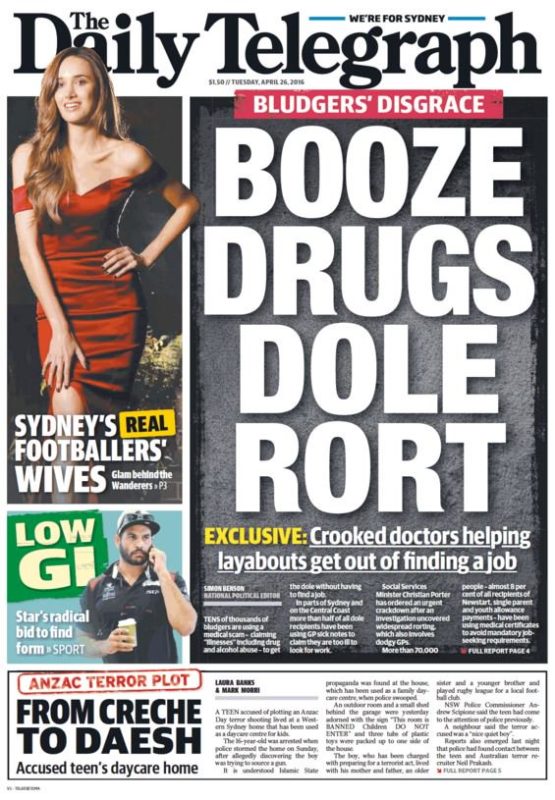Daily Telegraph’s ‘Booze drugs dole rort’ article slammed as misleading by Press Council
News Corp’s The Daily Telegraph has been rebuked by the Australian Press Council over its article “Bludgers’ disgrace: Booze drugs dole rort” .

Last year’s April 26 article, which had a secondary headline: “Exclusive: Crooked doctors helping layabouts get out of finding a job”, reported an “investigation by the Department of Human Services” into “tens of thousands of bludgers are using a medical scam – claiming “illnesses” including drug and alcohol abuse – to get the dole without having to find a job.”
Following a complaint, The Daily Telegraph defended the article to the Council, arguing in the context of the article “reasonable readers would agree with the description of those who would prefer to abuse the social security system and enjoy taxpayers’ money rather than look for work as ‘dole grubs’ and ‘dole bludgers'”.


The Tele has zero credibility. Apart from anything else they have run the tired old “dole bludger”line into the ground. Maybe this time they also went too far claiming that hundreds of doctors were “crooked” without any evidence.